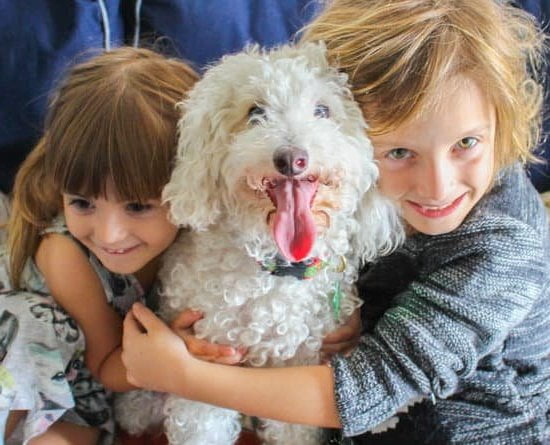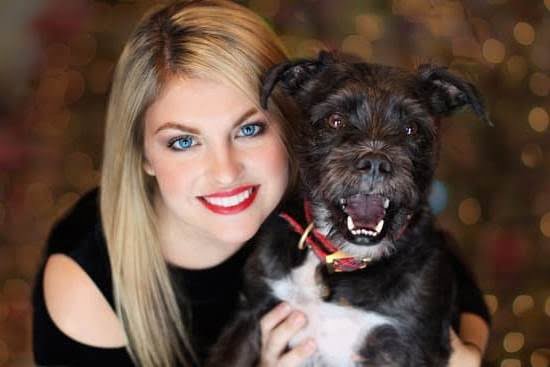Service dogs play a vital role in assisting individuals with disabilities, providing them with the independence, support, and companionship they need. However, not all service dogs are fully trained from the start. In Virginia, there is a growing concern about the public access rights for service dogs in training.
Do these dogs have the same privileges as fully trained service dogs? This article delves into the topic of public access rights for service dogs in training in Virginia and explores the laws and regulations surrounding this issue.
Before diving into the specific public access rights for service dogs in training in Virginia, it is important to understand the definition and purpose of these special animals. A service dog in training refers to a dog that is undergoing rigorous training to become a fully trained service dog.
While they may not possess all the skills necessary to perform tasks for individuals with disabilities, they still serve an important purpose in their training stage by preparing themselves for future roles. They provide crucial support as they learn and develop their skills alongside their handlers.
In order to ensure that individuals with disabilities can rely on their assistance animal at all times, it is essential to have a clear understanding of the laws governing these highly-trained animals. Federal laws such as the Americans with Disabilities Act (ADA) provide protection and specific rights to both fully trained service dogs and those in training.
However, individual states may also have additional regulations or restrictions concerning service animals. Therefore, it is essential to examine both federal and state laws to understand how public access rights are granted for service dogs in Virginia specifically.
Definition and Purpose of Service Dogs in Training
A service dog in training is defined as a dog that is undergoing the necessary training to become a fully trained service dog. These dogs are being prepared to perform specific tasks and assist individuals with disabilities, just like fully trained service dogs.
However, they may still be in the early stages of their training or have not yet completed the full training program. Service dogs in training go through rigorous training programs to ensure they are capable of assisting individuals with disabilities effectively and safely.
The purpose of service dogs in training is to provide support and assistance to individuals with disabilities. These dogs are trained to perform tasks such as guiding people who are blind or visually impaired, alerting individuals who are deaf or hard of hearing to important sounds, retrieving dropped objects, opening doors, and providing stability for mobility-impaired individuals. By helping with these tasks, service dogs in training enable their handlers to live more independent and fulfilling lives.
Service dogs in training also play a crucial role in socialization. During their training period, they are exposed to various environments, people, and situations so that they can adapt and respond appropriately when working with their handlers. This socialization process ensures that the dogs will be well-prepared for public access once they complete their training.
In Virginia, service dogs in training have legal protection under both federal and state laws. The Americans with Disabilities Act (ADA) defines service animals as only dogs (or miniature horses) that have been individually trained to do work or perform tasks for people with disabilities. It states that service animals include those that are currently undergoing trainkng.
While the ADA provides broad protections for individuals with disabilities who rely on fully trained service animals, it allows some flexibility regarding how businesses handle situations involving service dogs in training. This means that establishments may choose whether to allow access for these animals depending on their policies and requirements at their discretion.
In summary, service dogs in training serve an important purpose during their development into fully trained service dogs. They provide support and assistance to individuals with disabilities while gaining the necessary skills and socialization to excel in their future roles. In Virginia, these dogs have legal protection under both federal and state laws, although public access rights for service dogs in training may vary depending on individual business policies.
Federal Laws Regarding Service Dogs in Training
Understanding the Americans with Disabilities Act (ADA)
One of the most important federal laws regarding service dogs in training is the Americans with Disabilities Act (ADA). The ADA was enacted in 1990 and prohibits discrimination against individuals with disabilities. Under the ADA, individuals with disabilities have the right to be accompanied by a service dog in public places, including businesses, restaurants, and transportation facilities.
Rights and Exceptions for Service Dogs in Training
The ADA makes it clear that fully trained service dogs are allowed public access rights. However, when it comes to service dogs in training, the rights can vary. According to the ADA, service dogs in training are generally treated as pets rather than fully trained service animals. Therefore, businesses and establishments have the right to deny entry or access to these dogs.
However, there are some exceptions to this rule. In certain cases, service dogs in training may be granted public access rights if they are accompanied by a trainer who has full control over the dog. This means that if a person with a disability is being individually trained to use their own service dog, they may have public access rights during their training period.
It’s important to note that even though there may be exceptions for service dogs in training under the ADA, state laws can further regulate or clarify these rights. It’s essential for individuals and trainers in Virginia to understand and comply with both federal and state laws when it comes to service dogs in training.
The Importance of Educating the Public
While federal laws provide certain protections and guidelines for service dogs in training, it’s crucial for communities and individuals to be educated about these laws as well. Many people may not understand the difference between a fully trained service dog and a dog in training.
Public education is essential to ensure that people treat service dogs in training appropriately and do not interfere with their work or distract them from their training. It’s vital for individuals to respect the rights of those with disabilities and their service dogs, whether they are fully trained or in the process of being trained.
By educating the public about service dogs in training and their rights, we can foster a more inclusive society that supports and embraces individuals with disabilities and their valuable companions.
State Laws in Virginia Regarding Service Dogs in Training
Virginia, like many other states, has specific laws and regulations concerning service dogs in training. These laws aim to ensure the safety and appropriateness of service dogs in public spaces while also protecting the rights of individuals with disabilities who rely on these animals. It is important for individuals, businesses, and the general public to be aware of and understand these laws in order to foster a more inclusive community.
In Virginia, service dogs in training are granted certain privileges under state law. According to the Virginia Code § 51.5-44, a person accompanied by a service dog in training has the same rights and privileges as an individual with a fully trained service dog. This means that service dogs in training have the right to access public places such as restaurants, stores, hotels, and transportation just like fully trained service dogs.
However, it is essential to note that there are some conditions for these rights to apply. The handler must have a disability covered by the Americans with Disabilities Act (ADA) or another applicable federal or state law. Additionally, the handler must be using the service dog in training for assistance related to their disability. They must also comply with any local leash laws and have control over the behavior of their service dog at all times.
To provide further clarity on the matter, Virginia Code § 51.5-44 defines a “service dog-in-training” as any dog being raised or trained by an approved organization or person for the purpose of becoming eligible to assist individuals with disabilities. This definition helps distinguish between fully trained service dogs and those still undergoing training.
It is crucial for businesses and establishments in Virginia to be knowledgeable about these laws and understand that they are required by law to allow individuals accompanied by legitimate service dogs in training into their premises. By providing equal access to service dogs in training, businesses can contribute to a more inclusive society where individuals with disabilities can participate fully.
| Virginia Code | Description |
|---|---|
| Virginia Code § 51.5-44 | Grants service dogs in training the same rights as fully trained service dogs |
| Virginia Code § 51.5-44 | Defines a “service dog-in-training” as a dog being raised or trained by an approved organization or person for the purpose of assisting individuals with disabilities |
Public Access Rights for Service Dogs in Training in Virginia
In the state of Virginia, there is ongoing debate and confusion surrounding the public access rights for service dogs in training. It is important to understand the laws and regulations regarding this topic in order to ensure that individuals with disabilities can fully benefit from their service dogs during the training process.
Under federal law, specifically the Americans with Disabilities Act (ADA), service dogs in training are not considered fully trained service animals and therefore do not have the same public access rights. However, there are exceptions to this rule. According to the ADA, a service dog in training may be allowed access to public places if certain conditions are met. These conditions generally include:
- The trainer must have a disability and be using the training as an opportunity to train their own service dog.
- The trainer must be able to demonstrate that they have a legitimate reason for bringing a dog in training into a specific establishment.
- The trainer must maintain control over the dog at all times and adhere to any specific guidelines or restrictions set by the business owner or manager.
In Virginia, there are additional state laws that also come into play when it comes to public access rights for service dogs in training. While these laws may vary depending on specific jurisdictions within the state, generally speaking, they align with federal laws and require trainers of service dogs in training to follow similar guidelines.
It is important for individuals with disabilities who use service dogs in training, as well as trainers themselves, to familiarize themselves with both federal and state laws regarding public access rights. This will help ensure that they are able to navigate various establishments without facing unnecessary challenges or discrimination.
Overall, while service dogs in training do not enjoy full public access rights like fully trained service animals under federal law, there are still circumstances where they may be allowed entry into certain establishments. It is crucial for individuals who rely on these assistance animals and trainers alike to be aware of the rights and regulations in place to ensure a more inclusive society for all.
Training Requirements for Service Dogs in Virginia
In order for service dogs to provide effective assistance to individuals with disabilities, it is crucial that they undergo comprehensive training. The state of Virginia has established training requirements to ensure that service dogs possess the necessary skills and behaviors to function safely and appropriately in public spaces.
Training Standards and Requirements
Service dog training in Virginia follows specific standards and requirements set by the Virginia Department of Agriculture and Consumer Services (VDACS). These standards aim to uphold the welfare of both the service dogs and the general public.
According to VDACS, service dogs must be trained to perform tasks that directly relate to their handler’s disability. They must also meet certain behavioral standards, such as being under control at all times, responding consistently to commands, demonstrating appropriate social behavior, and not displaying aggressive tendencies.
In addition, service dog handlers are encouraged to enroll their dogs in recognized assistance dog programs or work with reputable trainers who specialize in service dog training. These programs or trainers can guide handlers throughout the training process and help ensure that necessary skills are acquired.
It is important for individuals considering training a service dog in Virginia to familiarize themselves with these training requirements. By adhering to these standards, individuals can ensure that their service dogs are properly prepared to assist them while maintaining public safety.
Ensuring Safety and Appropriateness
The rigorous training requirements for service dogs serve several important purposes. Firstly, they ensure the safety of both the individual with a disability and those around them. Service dogs undergo extensive obedience training so that they remain under control at all times, even in busy or distracting environments. This ensures that their behavior is predictable, reducing any risk of harm.
Furthermore, adhering to these requirements helps maintain the appropriate behavior of service dogs in public spaces. This ensures that a positive perception of all service dogs remains intact. It is vital for individuals with disabilities who rely on these animals for assistance not be hindered or questioned unnecessarily. By meeting the training standards, service dogs in Virginia can maintain their role as vital aids to individuals with disabilities and continue to access public spaces without disruptions.
Overall, the training requirements for service dogs in Virginia are designed to ensure that these animals possess the necessary skills and behaviors to fulfill their role effectively while ensuring public safety. Service dog handlers and trainers should familiarize themselves with these requirements to guarantee that their service dogs are fully prepared for assisting individuals with disabilities in a variety of environments.
Identifying a Legitimate Service Dog in Training in Virginia
Service dogs in training play a crucial role in assisting individuals with disabilities, but it is important to be able to identify legitimate service dogs in training. In Virginia, it can be challenging to distinguish between service dogs in training and other dogs that may not have the same public access rights.
This section will provide information on how to identify a legitimate service dog in training and emphasize the importance of not interfering or questioning individuals accompanied by these dogs.
Legitimate service dogs in training are usually easily identifiable through certain cues. One key indicator is the presence of a clearly marked vest or harness indicating that the dog is undergoing training to become a service dog. However, it’s important to note that not all states require this identification, so it is advisable to familiarize yourself with specific state laws regarding service dogs in training.
Another clue that can help identify a legitimate service dog in training is their behavior and demeanor. These dogs are typically well-behaved, calm, and focused on their tasks. They should exhibit good manners and remain attentive to their handler’s needs without causing any disruptions or distractions.
It is crucial for the general public to understand the importance of not interfering with or questioning individuals accompanied by service dogs in training. It is not appropriate to ask personal questions about the individual’s disability or the nature of the tasks performed by the dog. Interfering with these interactions can add unnecessary stress or confusion for both the individual and their service dog in training.
By recognizing and respecting legitimate service dogs in training, we can create an inclusive environment that allows individuals with disabilities equal access and opportunities. It is essential to remember that these dogs are constantly learning and developing their skills, so providing them with a safe and distraction-free environment will contribute significantly to their progress.
Resources and Support for Service Dogs in Training in Virginia
Ensuring the successful training and integration of service dogs in Virginia requires access to resources and support. There are several organizations and programs available that offer guidance, assistance, and valuable information for individuals who are training service dogs or encountering any issues related to public access.
Local Organizations
There are various local organizations in Virginia that specialize in providing resources and support for service dogs in training. These organizations often offer training classes or workshops specifically tailored for individuals who are training service dogs. They provide education on topics such as obedience training, socialization, and handling skills. Additionally, these organizations may have mentors or trainers available to answer questions or provide guidance throughout the training process.
Online Resources
The internet can be a valuable tool for finding resources and support for service dogs in training in Virginia. Numerous websites and online forums offer information on various aspects of service dog training, including selecting a reputable trainer, recommended training methods, legal rights, and public access requirements. Online resources also provide opportunities for individuals who are training service dogs to connect with others going through similar experiences.
Government Agencies
Government agencies can also serve as valuable resources for individuals involved in the training of service dogs. In Virginia, individuals can reach out to the Department of Agriculture and Consumer Services or local Animal Control agencies to inquire about specific laws or regulations concerning service dogs in training. These government entities can provide clarification on state-specific requirements or any additional regulations that must be followed during the training process.
It is important for individuals involved in the process of training a service dog or those encountering challenges with public access rights to take advantage of these available resources. Seeking guidance from experienced professionals and connecting with other dog trainers can greatly contribute to a successful outcome. By utilizing these resources and receiving appropriate support, Virginia can create an environment that is more inclusive and accommodating to those who rely on service dogs in training.
Conclusion
In conclusion, the public access rights for service dogs in training in Virginia are governed by both federal and state laws. While the Americans with Disabilities Act (ADA) provides certain rights and exceptions for service dogs in training, it is important to also consider the specific laws and regulations imposed by the state of Virginia. Understanding and respecting these laws is crucial in order to ensure that individuals with disabilities have equal access to public spaces and services.
Service dogs in training play a vital role in assisting individuals with disabilities, as they undergo intensive training to become fully trained service dogs. They provide invaluable support and independence to their handlers, helping them navigate daily tasks and improving their quality of life. It is essential to recognize their importance and not interfere or question individuals accompanied by legitimate service dogs in training.
To promote a more inclusive Virginia, it is crucial for the public to have a better understanding of the rights of service dogs in training. Education on how to identify legitimate service dogs in training can help eliminate misconceptions or discrimination towards individuals accompanied by these animals. Additionally, resources and support organizations are available in Virginia to offer guidance and assistance for those considering training a service dog or encountering any issues with public access.
By empowering service dogs in training, we can create a more inclusive society where individuals with disabilities have equal opportunities and access. It is our collective responsibility to respect their rights and support their journey towards becoming fully trained service dogs. Through increased awareness, understanding, and support, we can ensure that Virginia remains an inclusive state for all its residents.
Frequently Asked Questions
Are service dogs in training allowed in Virginia?
In Virginia, service dogs in training are indeed allowed. Under the Americans with Disabilities Act (ADA), individuals with disabilities have the right to train their service dogs in public spaces. This means that service dogs in training can accompany their handlers to various locations, including stores, restaurants, and other public areas.
Can you legally ask for proof of service dog in Virginia?
In Virginia, it is generally not legal to ask for proof of a service dog. According to the ADA, businesses and establishments cannot require individuals with disabilities to provide any form of identification or certification documents for their service dogs.
The law primarily focuses on the trained tasks or work a service dog performs for its handler rather than any documentation.
Do service dogs have to wear a vest in VA?
Service dogs in Virginia are not required by law to wear a vest or any specific identifying gear. While some handlers choose to dress their service dogs in vests stating “Service Dog,” these indicators are not mandatory under state or federal law.
What matters legally is that the dog is demonstrably trained to perform specific tasks assisting an individual with a disability and maintains appropriate behavior while working in public spaces.

Welcome to the blog! I am a professional dog trainer and have been working with dogs for many years. In this blog, I will be discussing various topics related to dog training, including tips, tricks, and advice. I hope you find this information helpful and informative. Thanks for reading!





